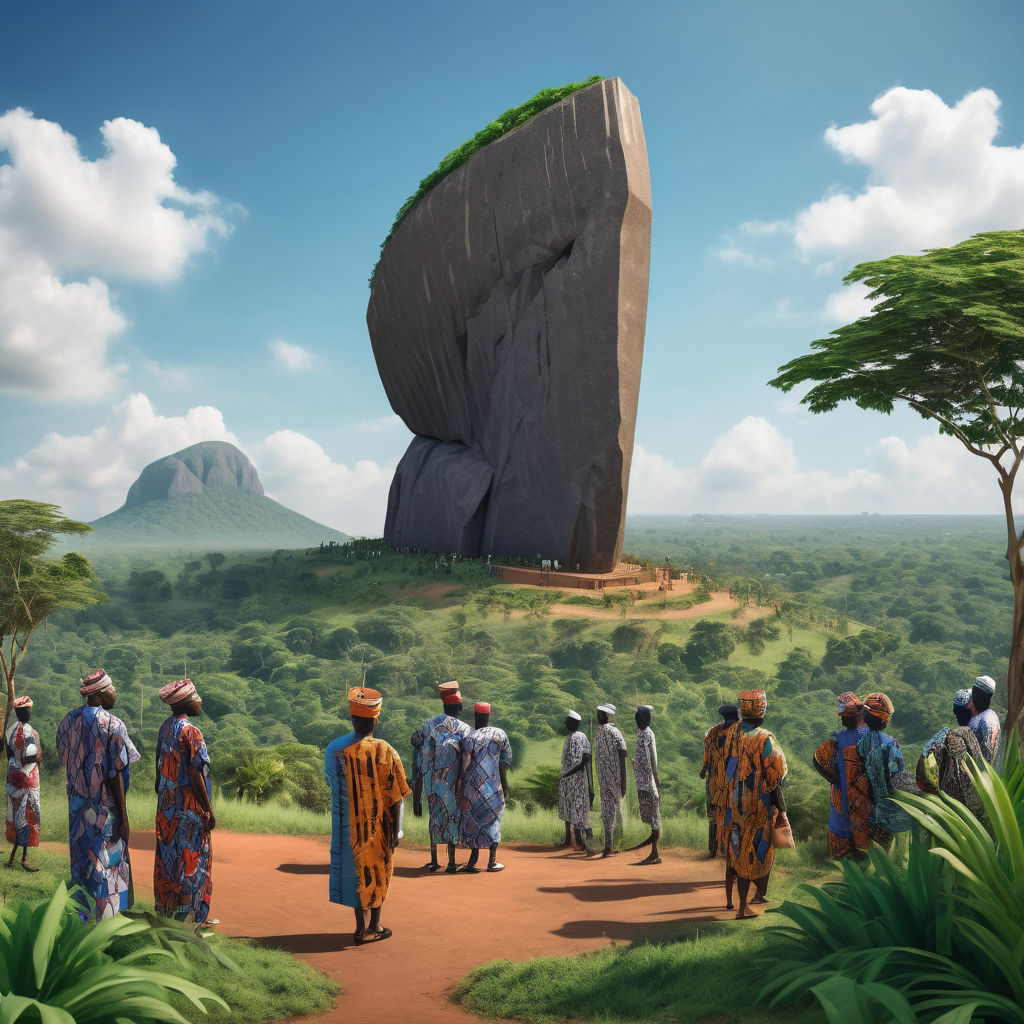Discover Nigeria: Rich Heritage, Cultural Diversity, and Social Dynamics
Exploring Nigeria's Cultural Tapestry, International Engagement, and Social Interactions

Introduction to Nigeria
Nigeria, officially known as the Federal Republic of Nigeria, is located in West Africa. It is bordered by Niger to the north, Chad to the northeast, Cameroon to the east, and Benin to the west, with the Atlantic Ocean lying to the south. Major cities include Abuja (the capital), Lagos, Kano, Ibadan, and Port Harcourt. Nigeria is renowned for its diverse cultural heritage, housing over 250 ethnic groups, with the Hausa, Yoruba, and Igbo being the largest. This diversity is reflected in the country's rich traditions, languages, music, dance, and art.
Cross-national and Cross-cultural Understanding
Nigerians generally perceive and engage with other cultures with openness, curiosity, and a strong sense of hospitality. The country’s historical interactions with various cultures through trade, colonization, and globalization have fostered an appreciation for cultural diversity. Nigeria actively promotes cross-cultural understanding through various initiatives and programs. Significant cultural exchanges and educational programs highlight Nigeria’s commitment to global engagement. Institutions like the Nigerian Cultural Centre and the National Commission for Museums and Monuments play a crucial role in promoting Nigerian culture abroad. Additionally, scholarships and exchange programs, such as the Nigerian Government Scholarship Awards and the Fulbright Program, facilitate academic and cultural exchanges, fostering mutual understanding. International partnerships also enhance cross-cultural understanding. Nigeria is involved in various cultural and educational agreements with countries worldwide, promoting cooperation and cultural exchange through joint research projects, academic collaborations, and cultural festivals.
Interactions and Social Dynamics
Interactions between Nigerians and foreigners are typically characterized by warmth and friendliness. Nigerian social behaviors are influenced by cultural values such as "ubuntu" (humanity towards others), respect for elders, and communal living. These values are often reflected in the way Nigerians engage with outsiders. Social behaviors in Nigeria emphasize respect and hospitality, particularly in initial interactions. Greetings typically involve a handshake, sometimes accompanied by a nod or a slight bow. In some cultures, it is customary to kneel or bow slightly when greeting elders. Hospitality is a significant aspect of Nigerian culture, and guests are often treated with great care and generosity, frequently invited to share meals and participate in cultural activities. Communication styles in Nigeria are generally expressive and indirect. Nigerians tend to use elaborate language and gestures to convey their messages, often prioritizing harmony and avoiding confrontation. Understanding these subtleties can be challenging for foreigners, but learning the language and cultural norms can help bridge this gap. Language plays a crucial role in facilitating interactions. English is the official language, while Hausa, Yoruba, Igbo, and other indigenous languages are also widely spoken. Multilingualism is an important aspect of Nigerian society, aiding in cross-cultural communication and interactions.
Views on Dating and Relationships
Dating and relationships between Nigerians and foreigners are becoming increasingly common, particularly among urban youth. Nigerian society tends to be open-minded about cross-cultural relationships, seeing them as opportunities for cultural exchange and personal growth. However, cultural expectations and traditions can still influence dating dynamics. In Nigerian dating culture, there is often a strong emphasis on family and social approval. Relationships are typically pursued with a long-term perspective, and there is a strong focus on compatibility and mutual respect. Traditional gender roles can play a significant role in dating dynamics, with expectations for men to be providers and protectors, and for women to be nurturing and supportive. Cultural expectations and traditions, such as the importance of family approval and traditional gender roles, can impact relationships. Understanding and respecting these cultural norms is essential for successful cross-cultural relationships in Nigeria.
Marriage and Family
Marrying foreigners is widely accepted in Nigeria, although it comes with certain social and familial considerations. Legal considerations for such marriages are straightforward, with clear regulations for international unions governed by Nigerian civil law. Socially, Nigerian families may initially have reservations about cross-cultural marriages due to concerns about cultural differences and social compatibility. However, acceptance typically increases as relationships develop and families get to know the foreign partner. Family plays a central role in Nigerian culture, and marrying into a Nigerian family often involves participating in family gatherings and traditions. Common practices in cross-cultural marriages include celebrating both Nigerian and foreign traditions, creating a blended cultural environment. For example, a couple might celebrate Nigerian holidays like Independence Day and New Yam Festival alongside holidays from the foreign partner’s culture.